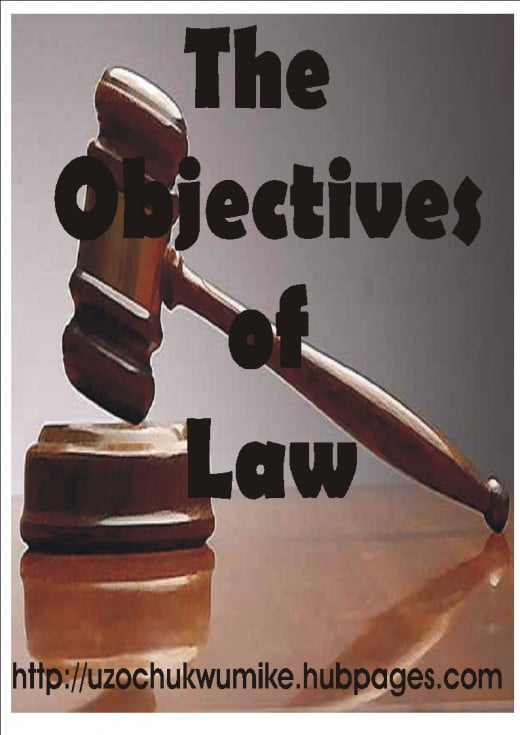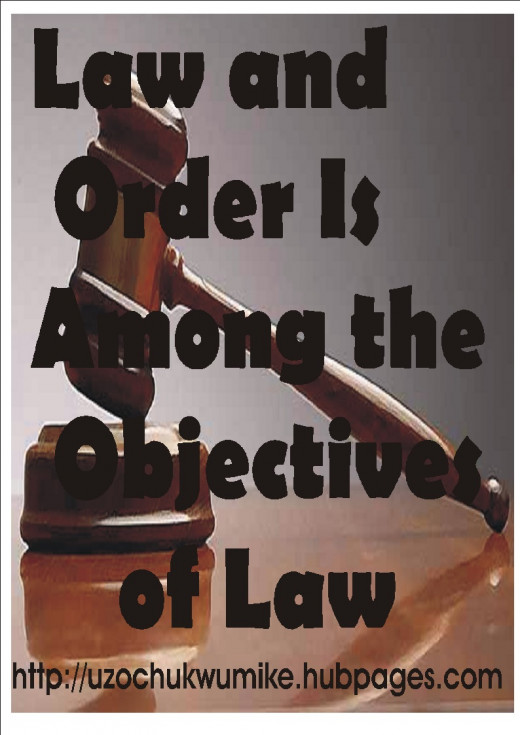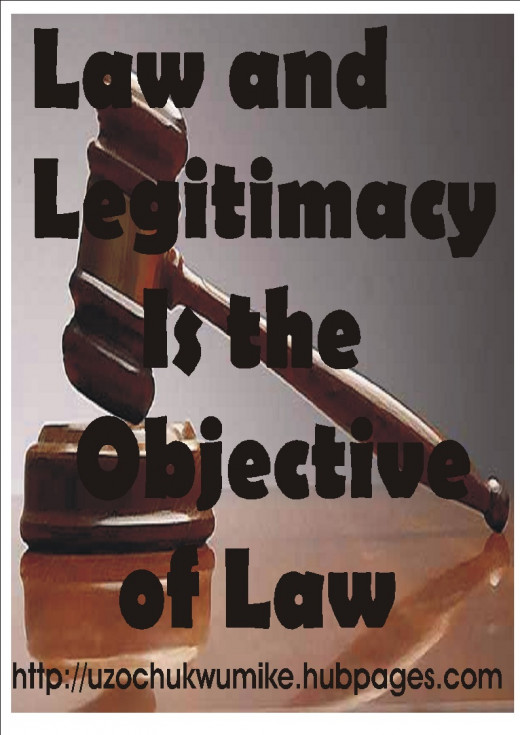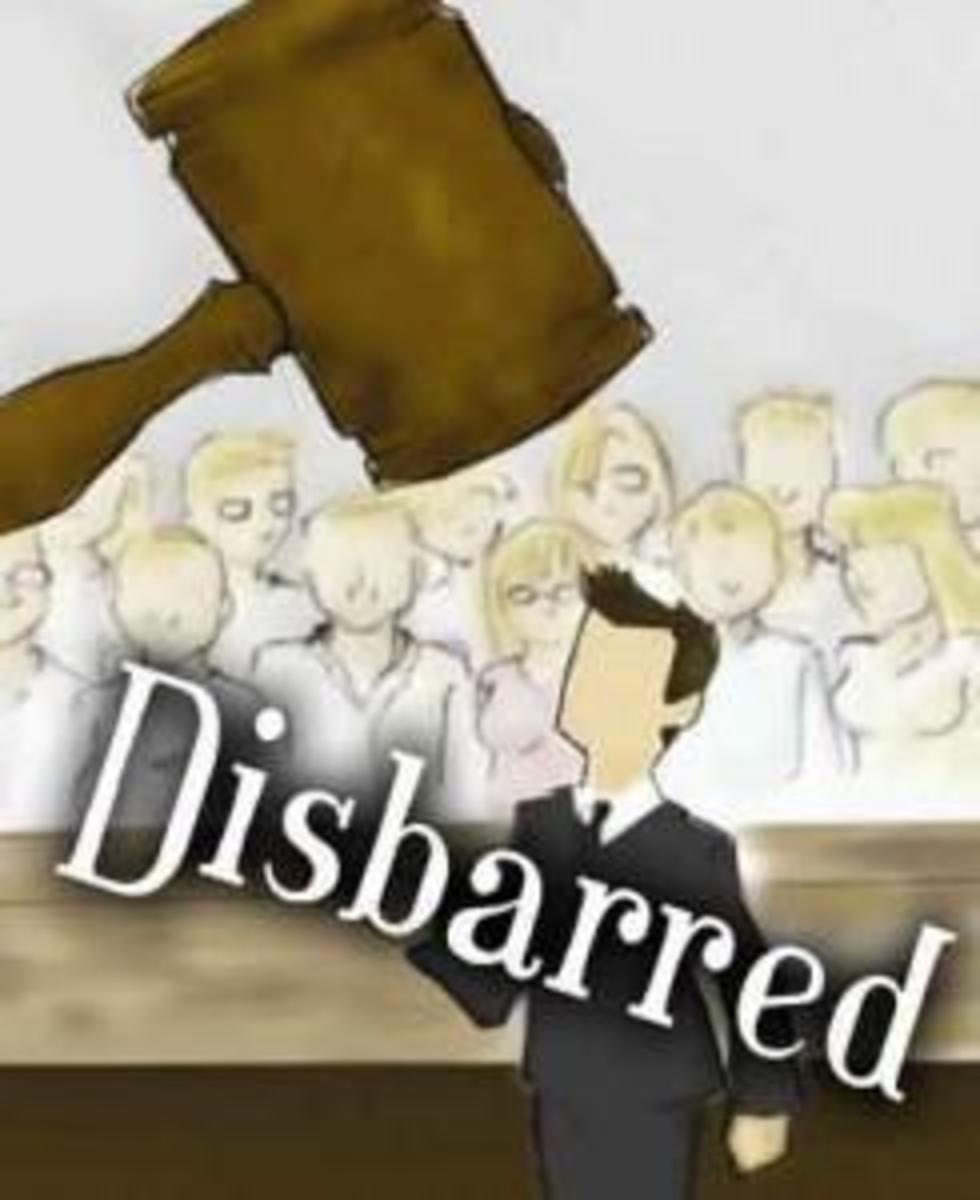Objectives of Law

Introduction
Law as a course and a rule or body of rules made by institutions, bodies and persons vested with the power to make such rules which are binding and enforced among the members of a given state or society, has many objectives for its institution or establishment. The word “objectives” can simply be replaced with goals or aims. So, this topic can be rewritten as the aims or goals for establishment of Law.
Before Law is established in any country or organization, there are things that call for that. In the old, human trafficking was rampant in African and even in European continent. Because of the problem such was causing and for the fact that it was no good act, a Law was made against it. Though there is modernized system of human trafficking in United States, any who is caught in such act will face the Law because it is now considered an offence.
The objectives of Law include maintaining Law and order, practice of Law and Justice, to cultivate the culture of Law and freedom, Law and the State, Law and Legitimacy, and finally Law and sovereignty. Some of these objectives of Law are further divided, but will be discussed on the body of this topic.

Law and Order
One of the reasons for evolution of Law and its institution is to maintain Law and other between citizens of various countries. Without Law, man can wake up one day and kill his fellow man to consume the flesh as food. The person he intended to kill and eat might be his typical enemy and this could result to crises between two families and finally matures to disorderliness. But the aim or object of Law is to prevent such and in return maintain Law and justice.
The classical function of any government is to maintain Law and order, protect lives and properties within its territory, and ward off external aggression (Abiola 2006). It is the fundamental function of democratic government located all over the globe.
For Law and order to be maintained properly in any society, there must be its proper reinforcement. The Law will not perform its primary objective which is maintenance of Law and order if it is not properly administers by the agencies. So proper reinforcement of Law make it qualified for the objective.
Law and Justice
Cases are presented in law courts for justice to be done after judgment.Justice implies the act of treating people morally right and in the way that is fair. It is one of the objectives of Law. Law is instituted so that people will not take advantage of others rather fairness becomes the priority.
In ordinary parlance, Law and justice are synonyms. However, justice is the correct application of a Law, as opposed to arbitrariness (L.B Curzon). Law works for justice to prevail. Law is therefore not an end in itself, but means to achieve justice (Abiola 2006). With the help of constitutional Law guiding a country justice is being done by judging cases in courts of Law.
Taking for instance a situation whereby a young beautiful female student in a university is being harassed sexually by a young male lecturer because he thinks that the student has nobody to speak on her behalf. He might also did that because he thought that he is more superior to the young beautiful lady due to the fact that he sees himself as a lecturer and before the lady gets any of her grades she must pass through him. If the lecturer continued intimating the lady and threatened her that he will fail her unless she agrees to sleep with him for at least two days; Justice prevails when the young lady reports the case to the Law court and the lecturer punished accordingly because the act of sexual harassment is considered an offense by Law.
There are various theories of Law of Justice but all of them will not be discussed. Among the Law of justice are:
- Formal justice; and
- Substantive Justice.
From the word “formal”, formal justice is that type of justice that is done when the case is decided strictly according to the Law. It is a theory of justice that postulates that the court must apply Law strictly without any regard to any extra-legal consideration. In formal justice, the harshness of the Law is not mitigated in any way.
Substantive justice requires that where the strict application of the Law may produce manifest absurdity or injustice, the judge may consider some extra judicial factors in interpreting the Law in order to arrive at a just decision. This theory of justice is more mild than that the formal justice. There are rooms for considerations in this type than the former.
Law and Freedom
Still on the objective of Law, the goal of Law is to give freedom to the people and nations. Law is not established to be a source of bondage to man; rather it constrains man from certain actions that may be detrimental to man and the society in general.
Taking Igbo ethnic group in Nigeria as an example, in the olden days, any woman that gives birth to twins must have the twins killed because it was considered as an abomination. As of then, the twins were not given the freedom to live their lives because there was no legitimate and compatible Law practiced in the land. With the coming of Christianity which propels the institution of legal Law on the ethnic group, the twins are no longer seen as abominations but as gift being given to man by nature. With the institution of the Law in the Land, freedom is given to the twins to live.
The desire of man to be free is innate (Abiola 2006). For the fact that man wants to be free, he has waged relentless war against domination of different kinds through the ages in the form of revolution or protest. Some protests in the quests to be free have caused the death of many people. Law recognizes the freedom of citizens of the state and seeks to regulate the exercise of that freedom in a way that will advance the interests and objectives of the individuals and the State. Notable examples are French Revolution and the American’s War of Independence.
Law and freedom take many forms which include:
- Freedom of contract; and
- Political Freedom.
Freedom of contract
This explains that any person has the freedom to make any contract of his or her choice without any restriction. He also cannot enter into any contract if he or she feels like doing so. Freedom of contract allows any party to buy any product or service and sell at any price that pleases him or her.
It is this form that helps in the economic growth of many nations because nobody is prevented to do any good business he or she feels will be lucrative and also add to the economic growth of his or her country. Economic freedom is promoted by wise countries because of its advantages.
Limitations of Freedom of Contract
It is true that freedom of contract is a welcomed idea by Law and countries that want to grow economically, but at the same time has limitations. The court and the Legislature have merged to invalidate certain contractual terms, which is considered harmful to other social values in the society or to the interest of other persons. Hence, the limitations of freedom of contract are:
- A contract will be void if it contemplates the commission of a crime or is contrary to a public policy;
- The Law sometimes controls the prices of some essential goods or services;
- The Law may not allow any contractor or entrepreneur to use a trademark or name that resembles that of existing business in any society.
Political Freedom
This is another form of freedom of contract which is considered under the objective of Law. Political freedom involves the freedom to vote and be voted for. What it implies is that you have the freedom and the right to vote for any candidate of your choice that is contesting for any political leadership position. Also, people have the right to vote for you or not when you are contesting for any leadership position.
Political freedom also includes the right to join any political party that is ones choice. That party A is doing better than party B is not what is more important but the decision is that of the interested person. So, nobody or politician can force you to join any party when you know that is not your choice. So, it is the right of any citizen of any country to join any political party that he or she wants to take part in.
Limitations of Political Freedom
In as much there is political freedom in democratic States; there are limitations to the freedom or political rights. Some of the limitations of political rights are:
- Some categories if people may be disqualified from voting. Some people that belong to the categories are children, lunatics and so on. In many States, the generally accepted aged for voting is 18 years.
- Certain criteria may be stipulated for the registration of political party. You cannot wake up one day and make yourself a political party when you know that one person cannot be a political party.
- Certain people may be disqualified from seeking election to some offices. Taking the post of country’s presidency for example, certain Law has it that the candidate must have held and led in lower level before aspiring for that top one.
Law and State
Law and State is one of the objectives of Law. The word “State” occupies strategic place in legal theory. A state is a territorial unit, containing a stable population under the authority of its government, and recognised as being capable of entering into relation with other entities with international personality. This definition is based on international purposes. In a nutshell, a state is an organized political community consisting of four basic elements namely:
- A definite territory;
- Population;
- Government; and
- Sovereignty.
Among the objectives of Law is to seriously protect the state from any harm that may be from external or internal source. There are wars and crises going on all over the world. The objective of Law when it comes to such occurrence is to protect the states or countries by working through the government. The Law mandates the government to protect the people and this they do through security agencies.

Law and Legitimacy
In the early period of legal system, legitimacy was based on charismatic qualities of the particular leaders and traditional rulers. Gradually, it became a matter of Law, meaning a thing in accordance with the Law or rules (Hornby).
It is the objective of the Law governing a particular society to prescribe the requirement needed before any person assumes the post of leadership of that country. The Law states the validity of a person who wants to lead in any state. This is stated in the Constitutional Law of every country.
The 1999 constitution of the Federal Republic of Nigeria in Section 1 (2) has this to say on the Lawful and regular ways of exercising of power:
“The Federal Republic of Nigeria shall not be governed, nor shall any person or group of persons take control of the government of Nigeria or any part thereof, except in accordance with the provision of this constitution”.
Law and Sovereignty
The word sovereignty is replaceable with supreme power or authority. The Law has its goal in given supreme power to the person that leads as the head of state. The president of a democratic state has the veto and supreme power. He has the power to dissolve any committee that is not meeting up to the standard when they were assigned any function to perform.
Through many years of struggle and revolutions, sovereign power in most countries of the world have been wrestled from the hands of few individuals and vested on the people who now express their sovereign powers through their representatives in the government.
Conclusion
The objectives of Law are not bad in any way and it is for the good and well being of the society and the people living inside of it. The objectives of Law are unique and understanding as explained in this topic. As discussed, the Law finds its objective in maintaining order, Justice, freedom, keeping State in good health, legitimacy, and finally in sovereignty.
References
- Abiola Sanni (2006). “Introduction to Nigeria Legal Method”. Obafemi Awolowo University Press Limited, Nigeria, p. 31-43
- J.H Farrar and A. M Dugdule (1990). “Introduction to Legal Method”. Sweet and Maxwell, London, p11.
- 1999 Constitution of the Federal Republic of Nigeria.
- A. C Dicey (1881). “Law of the Constitution”.
- History of Paris (1863), p. 387.








